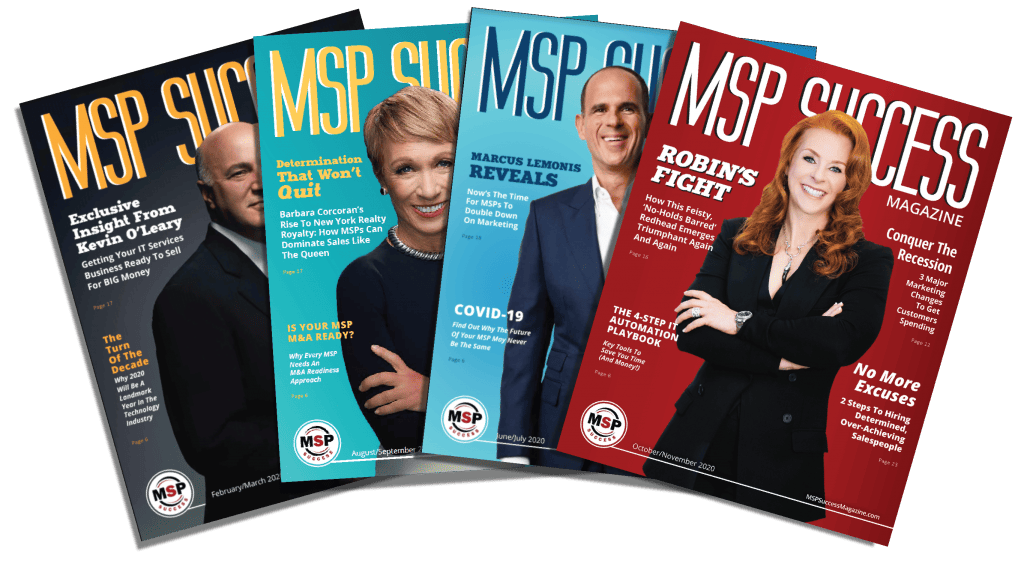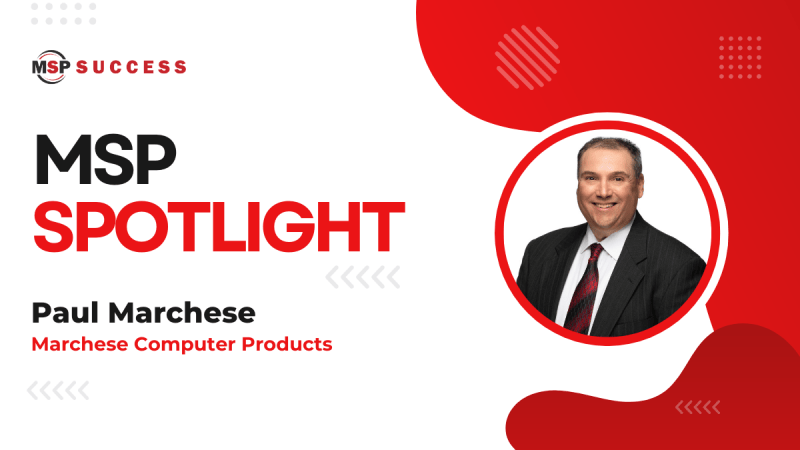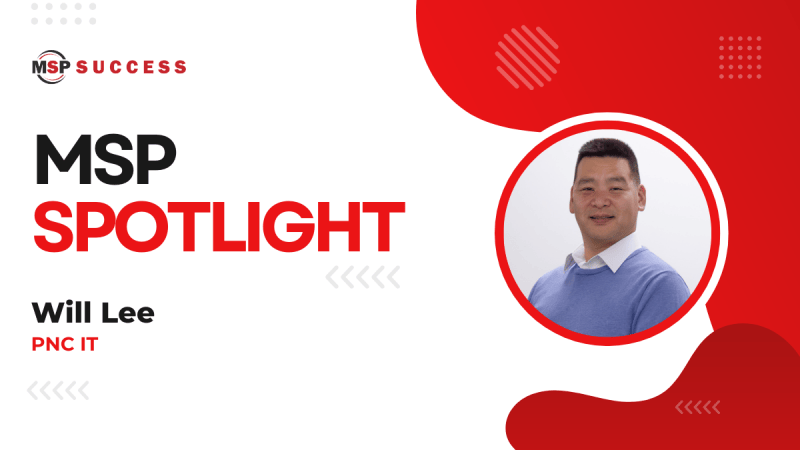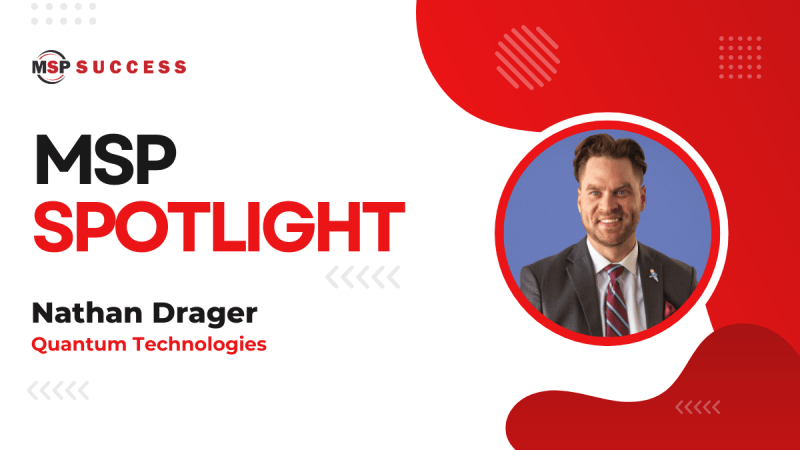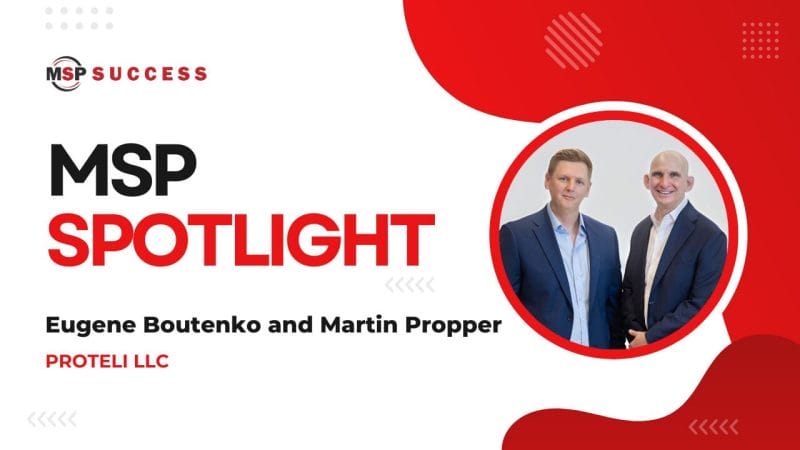- Company: Real IT Solutions
- Founded: 2006
- Headquartered: Grand Rapids, Michigan
- Geographic Market: West Michigan
- Top Growth Indicator: 30% growth for five years
- YoY % Of Growth: 31%
- CEO & Founder: Matt Kahle
- VP & Co-Owner: Adam Peterson
What are the top three metrics that you use to measure your business and why?
Customer satisfaction is one metric we track. Our tagline is “The IT department for your manufacturing business,” so we really try to partner with our manufacturing customers and deliver all of the services that they would expect a Fortune 500 IT company to deliver. I’m watching customer satisfaction constantly because that’s how we grow and how we maintain our reputation.
Our customer satisfaction is tied to something called uptime. Uptime is the ratio between a manufacturer’s operational time and total time. As manufacturers, our customers need their production lines up and running to generate profits, and any kind of downtime in their systems will have a dramatic impact on their business. For that reason, our entire service delivery model is based on problem prevention. All the systems and processes we put in place are geared to help those manufacturers stay running 100% of the time. For us, customer satisfaction is foundational to growth, and it’s ultimately why we’re here.
I also track our monthly recurring revenue (MRR). It’s a measure of what revenue I can expect over time, and it helps us plan years out. The third metric I track is our operating expense ratio. My goal with that is to make sure expenses are below income and that we’re spending money in the right places. Operating expense ratio is applicable to the business overall as well as individual customers. We regularly look at our expense to deliver service to each of our customers. When we look at that across the customer base, we might see that we’re spending too much for one customer and not enough on another customer. We can see where we should redirect time and resources to make sure we take care of everybody.
What’s the top lesson you had to learn that allowed you to kick-start your business growth?
My top lesson was really learning to track the numbers and then using them to manage my business, especially as it pertains to sales and the sales process. How many leads are we getting? How many proposals do those leads generate? How many quotes are going to our existing customers, and how many of those are we closing? Really, that was the biggest shift in our mindset — learning to manage by those numbers verses just kind of reacting.
Something that has helped us was having a couple different layers of accountability. We have an accountability sales coach who we have to report to on a monthly basis. To do that, we have to physically record those sales numbers in a spreadsheet. By doing that, it’s easier for us to say, “Our goal was to get 50 leads in March, and we only got 30. How will we make those up in April?”
What would you say was the single secret to your success this past year?
I would say hiring the right people. We had quite a bit of turnover the last three years, and then this last year, we settled on the team, and it’s been fantastic. We tweaked our hiring process, so we have a pretty thorough vetting process we go through now. There’s a very important psychological profile that we do on all our potential new hires. We review that with an HR consultant to make sure the candidate has the mindset, habits, and attitudes that would make them a good fit for us and for the role. It’s interesting how wrong our gut feeling can be. Sometimes you think you have the right person, and then you look at their profile and you can see they’re absolutely not the right person.
What was the biggest challenge you had to overcome this past year related to either reaching that growth or as a result of that growth?
Again, it’s related to our team. We had a marketing person who caused a lot of problems for us. That person wasn’t doing what they said they were doing, and it took me three months to catch on to that. Then, of course, we had to fire that person and hire somebody else, and by the time the whole thing was done, we had lost about six months of marketing.
The biggest mistake we used to make was hiring people based on their interview. People are at their best in their interview, and without going deeper into reference checks and expanding the scope outside of the interview, you really don’t get the full picture. Today, our hiring process is pretty extensive. We start with a phone interview, just to make sure that they can book a time and follow through with it. We’re also assessing their communication style and their ability to speak clearly and be friendly over the phone. We weed out some people there. If they pass that check, then we do our psychological profile.
Once we’ve narrowed our search down to just a few candidates who are close to meeting our requirements, we run through the consultant, and once we’ve determined that this is a person we probably could hire, we bring them in for a face-to-face interview. We have them bring their references. Based on their interview, we decide yes or no, and if it’s yes, we call all the references, just to make sure that there isn’t anything that we haven’t uncovered.
But the process doesn’t stop after they’ve been hired. There’s an ongoing evaluation, especially over the first 90 days. We’re constantly assessing how quickly they’re able to get through their orientation material, how well they get along with the rest of the team, and how they use their strengths and try to improve on their weaknesses. We’re looking at their critical thinking skills and their work ethic.
Who would you say is the most impactful business leader or business thought-leader whose techniques or leadership style you either try to emulate or are influenced by? Why?
Dave Kahle is a sales consultant and a sales trainer who also happens to be my dad. He’s written 12 books on sales. He taught us a sales process: focus on the numbers. It’s a philosophy I felt good about. I always thought sales people were shady, slimy, and trying to scam people, and because of that, I never wanted any part of it. When I finally shut up and listened, though, my dad helped bring that mindset of building integrity into our business and into our sales. That made it more comfortable for me to do, and that shift in mindset was key.
What book would you recommend that other MSPs or SMBs trying to grow their business should read?
Time management is one of the most critical things for a small-business owner. I think it’s something we all struggle with, so it’s really easy to recommend “The 7 Habits of Highly Effective People” by Stephen R. Covey. It’s been around for a while and there’s a reason for that.
In the book, Covey talks about beginning with the end in mind. You figure out what your goal is, then you work backward from there. That really applies to the tasks you are going to do in a given day. Planning backward helps you prioritize your day and keeps you focused. Planning and prioritization are some of the key principles in the book, but another thing Covey talks about is that you have to take time to “sharpen the saw.” That’s basically about continuous self-improvement. Don’t be afraid to go back to school, so to speak. We can’t all be experts about everything, but there’s always something new to learn. Never stop learning.
In closing, any specific advice or words of wisdom that you would give to other MSPs looking to grow or build a successful exit for their business?
I think the only real generic words of wisdom I would give would be just knowing your “why.” Why are you doing what you’re doing? Why are you trying to grow your business, or why are you in business for yourself? If you know why you’re doing what you’re doing, I think that brings a little clarity to your business and your life.







